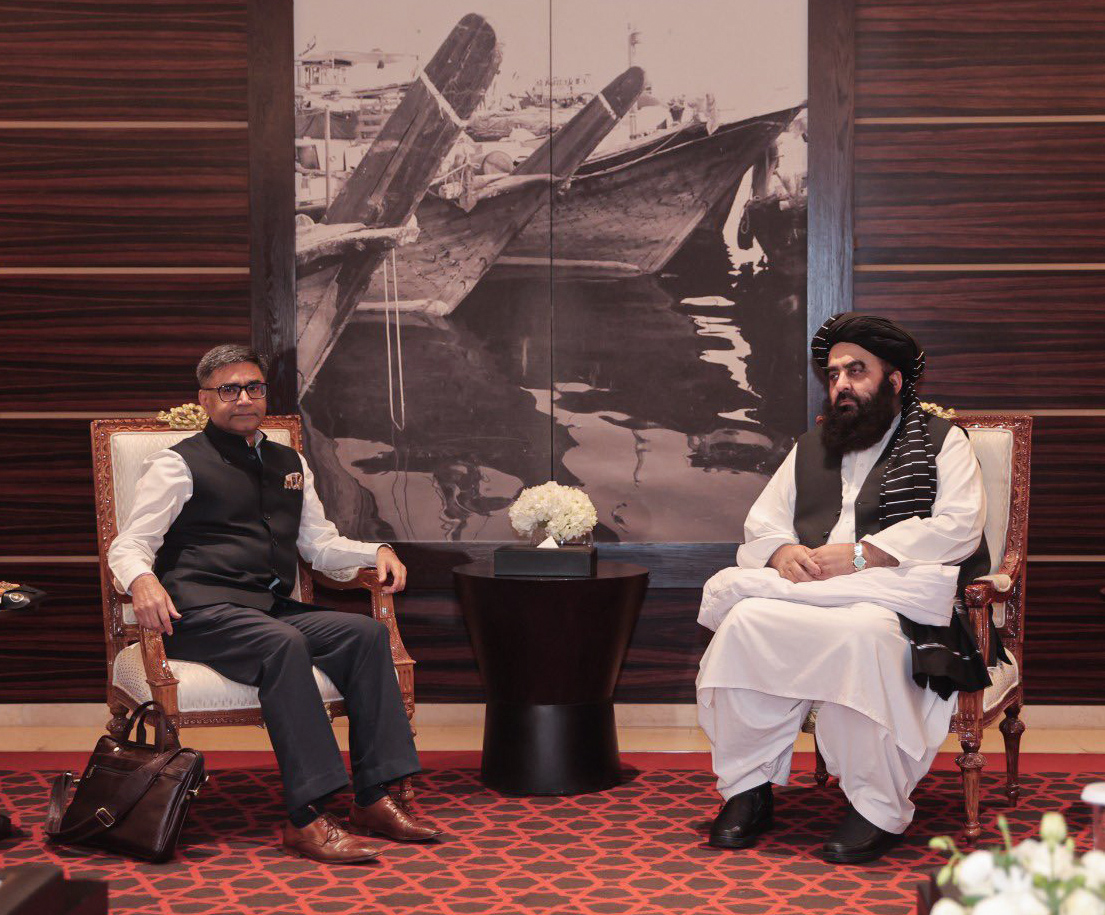India’s careful engagement with the Taliban intersects with Pakistan’s hardened stance on cross-border militancy, shaping a volatile regional balance.
Our Bureau
Kabul / New Delhi
When the United Nations Security Council (UNSC) approved a travel exemption for Taliban Foreign Minister Amir Khan Muttaqi to visit New Delhi from October 9 to 16, it underscored a new phase in India’s cautious but deliberate engagement with Afghanistan. The decision comes at a time when the region is fraught with escalating cross-border tensions, as Pakistan grows increasingly frustrated with Kabul’s inability—or unwillingness—to rein in militants operating from Afghan soil.
The development has placed India in a delicate position: attempting to balance its humanitarian commitments and strategic interests in Afghanistan, while navigating a complex regional dynamic in which Pakistan looms large.
India’s Afghan Calculus
For India, Afghanistan has always been more than just a neighbour—it is a test of regional influence, connectivity, and security. Since the Taliban’s return to power in 2021, New Delhi’s approach has evolved from initial reluctance to limited engagement. The UNSC’s approval of Muttaqi’s visit represents a pragmatic recognition that ignoring the regime is no longer viable.
India has long championed people-to-people ties with Afghanistan, funding development projects, education, and infrastructure. Even after the Taliban takeover, it quietly resumed humanitarian aid, including food grains and medical supplies. Hosting Muttaqi signals that New Delhi is willing to explore diplomatic channels, albeit without formally recognising the Taliban government.
The stakes are high. Afghanistan remains in humanitarian freefall, compounded recently by an unprecedented nationwide internet blackout and restrictions on women’s education and employment. India’s outreach, therefore, has a dual purpose: providing relief to Afghans while ensuring its own security interests are not compromised by terrorist groups operating in the region.
Pakistan’s Growing Anger
While India cautiously engages Kabul, Pakistan is hardening its stance. Islamabad has accused Afghan nationals of carrying out nearly 80 per cent of recent terror attacks inside its borders, particularly in the restive Khyber Pakhtunkhwa and tribal districts. The spike in violence has forced Pakistan’s leadership into a defensive posture.
State Minister for Interior Talal Chaudhry, in a blunt warning, declared that if talks with the Taliban fail to stop cross-border terrorism, Pakistan would respond with “the language of bullets.” His remarks reflect not just anger but desperation, as militant attacks increasingly target Pakistani soldiers, policemen, and civilians.
Prime Minister Shehbaz Sharif amplified these concerns at the United Nations General Assembly, blaming “externally sponsored terrorism” for threatening Pakistan’s stability. Islamabad has tightened border controls and stepped up deportations of Afghan migrants, drawing criticism from humanitarian organisations and complaints from deportees facing dire conditions back home.
This escalating confrontation complicates India’s own calculations. On the one hand, Pakistan’s pressure on the Taliban may open diplomatic space for India. On the other, any deterioration in Afghan-Pakistan relations risks creating instability that could spill across borders.
India’s outreach to Afghanistan is inevitably seen in Pakistan through the prism of rivalry. Since the Cold War, Kabul has been a contested space for influence between New Delhi and Islamabad. Pakistan has historically sought strategic depth in Afghanistan, while India has invested in development projects as a means of gaining goodwill.
The Taliban’s return initially seemed like a win for Pakistan, given its long-standing ties with the group. But recent events suggest otherwise. Kabul’s reluctance to act against militants targeting Pakistan, combined with growing domestic unrest, has soured ties. This has created an opening for India to re-enter the Afghan equation.
Muttaqi’s visit to New Delhi under UN exemption may therefore be symbolic, but it sends a clear message: India is willing to engage directly, regardless of Pakistan’s objections.
A Fragile Balancing Act
For India, the challenge lies in engaging Afghanistan without being seen as endorsing the Taliban’s regressive policies. The international community remains critical of the regime’s curbs on women’s rights, education, and freedoms. India’s diplomatic moves must therefore tread carefully, balancing humanitarian outreach with principled stands on rights and governance.
For Pakistan, the dilemma is even sharper. Its security concerns are legitimate—cross-border militancy has taken a heavy toll. But its heavy-handed measures, including threats of force and mass deportations, risk alienating Afghans further and worsening instability.
India’s decision to host Amir Khan Muttaqi underlines a shift from hesitation to cautious engagement. Pakistan’s frustration highlights the limits of its leverage over Kabul. Together, these moves underscore that Afghanistan remains the fulcrum of South Asian geopolitics.
The coming weeks will reveal whether New Delhi’s outreach can create a new channel of dialogue with the Taliban, and whether Islamabad’s warnings translate into further confrontation. In either case, the triangle of India, Afghanistan, and Pakistan will continue to define the region’s fragile security and its uncertain path toward stability.
Post Views: 54
